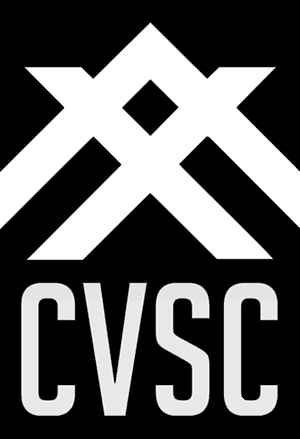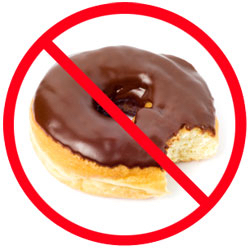 Recently a few studies have been released about supplements that may have you reconsider your regimen. Now, before you throw out your vitamin cabinet, remember this - the best source for nutrition is food. Every time. Whole foods. That said, I think its important to say that I regularly take Creatine, Beta-Alanine & whey protein. And occasionally take a multivitamin & fish oil. That said - I do my best to buy from reputable companies, I avoid packaged stimulants & I don't use them as a substitute for good diet. So I don't think supplements are universally evil or bad, but should be approached with a skeptical eye & an educated mind. If its sounds too good to be true, it probably is.
Recently a few studies have been released about supplements that may have you reconsider your regimen. Now, before you throw out your vitamin cabinet, remember this - the best source for nutrition is food. Every time. Whole foods. That said, I think its important to say that I regularly take Creatine, Beta-Alanine & whey protein. And occasionally take a multivitamin & fish oil. That said - I do my best to buy from reputable companies, I avoid packaged stimulants & I don't use them as a substitute for good diet. So I don't think supplements are universally evil or bad, but should be approached with a skeptical eye & an educated mind. If its sounds too good to be true, it probably is.
The supplement industry is a multi-billion dollar industry that continues to grow largely on the dollars of weight-loss seekers, alternative-medicine enthusiasts & athletes. What many people aren't aware of, is that the industry is largely unpolicied in the US thanks to The Dietary Supplement Health & Education Act of 1994 that "keeps the Food and Drug Administration at arm's length from the supplement industry. A supplement manufacturer need only provide the FDA with a "reasonable expectation of safety," and no proof whatsoever of efficacy." (http://www.sportsonearth.com/article/42089796/) Meaning there is a potential mine-field of products on the shelves. A recent study found this:
"Between 2004 and 2012 the FDA recalled 237 supplements because they contained unlisted drugs in their ingredients...In a follow up study the FDA looked at the previously banned supplements that were still on the market. They found that 66.7% of those tested still contained unlisted drugs in their ingredients. Further, 22.2% of the supplements tested contained additional drug adulteration not previously detected."
Bottom line: You don't necessarily get what you pay for. And frequently you get absolutely nothing of what you want.
" A 2013 study using DNA barcoding on herbal supplements found that 59% contained ingredients not on the label. Only 48% actually contained the plant product they were supposed to, and a third of those also contained unlisted fillers and contaminants."
The FDA only tests supplements for 'known or probable drugs', meaning if they are not specifically seeking out an un-labeled drug, they are unlikely to discover it. This means the probability of a much higher percentage of supplements being mislabeled is likely.
And assuming you know what ingredients you are trying to avoid, the intentionally vague & numerous names a given chemical can be given on packaging can be just as confusing.
"DMAA is banned by the World Anti-Doping Agency...and the U.S. military. The stimulant was recently linked to the deaths of two soldiers, as well as a woman running in the London Marathon. Products containing it are marketed as sexual aids and legal-high "party pills" when they're not being sold as workout boosters. The FDA warns that DMAA "narrows the blood vessels and arteries" and can cause symptoms ranging from "shortness of the breath to tightening of the chest and/or a possible myocardial infarction (heart attack)."
DMAA would seem like an easy substance to avoid, except that one list published by the Human Resource Performance Center named a total of 31 different aliases for DMAA, from polysyllabic chemical names, to brand names, to innocuous variations on "geranium" (the ingredient in supplements possesses only a passing chemical similarity to the substance found in flowers), to off-the-wall names like "crane's bill extract."
So what can be done? There's 2 solutions.
1. Get educated & be skeptical.
The NFL Players Association recommends their players only take substances from reputable sources & resources to quickly research products that may contain banned substances. And this very logic applies to your 'weekend warrior' who's just looking to lose a few pounds or put on a little muscle with an over the counter pre workout or weights supp. It remains in your hands to buy from reputable retailers & stay aware of the ingredients you ingest. Talk to your doctor, talk to your coach - use your available resources before taking a miracle pill.
2. Don't take them.
The average gym enthusiast may have less need for supplementation than your pro bodybuilder or Olympic athlete.
"Some athletes, particularly amateurs, do not get enough protein or calories before their workout, though Lightsey and others argue that it is a problem best solved with chicken and milk, not expensive powders."
"In the meantime, athletes must know to distrust labels. They should steer clear of unknown suppliers. They should know that even benign health claims are often unverified, that a proper diet can take care of all of their needs, even if they are marathoners or 300-pound defensive ends, and that substances that claim to be powdered antlers or geraniums can not only get them suspended but could cause health risks."
Whatever your choice - be smart & get strong!
Read More:
(http://www.theskepticsguide.org/adulterated-supplements)
(http://www.barnesandnoble.com/w/science-based-medicine-steven-novella/1114924552?ean=2940016247311)
(http://archinte.jamanetwork.com/article.aspx?articleid=1678813)
(http://www.ncbi.nlm.nih.gov/pubmed/18728265)
(http://www.sportsonearth.com/article/42089796/)
















 [typography font="Cantarell" size="18" size_format="px"]"You can't out-train a shitty diet."[/typography]
[typography font="Cantarell" size="18" size_format="px"]"You can't out-train a shitty diet."[/typography]